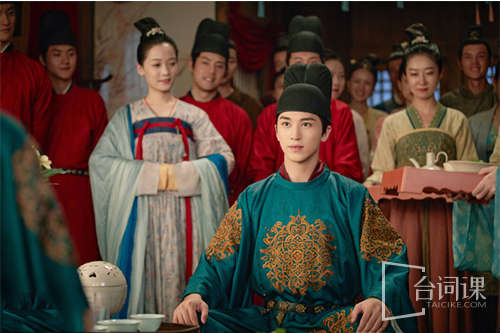《weaving a tale of love》Pei Xingjian character prototype
《weaving a tale of love》The character Pei Xingjian did exist in history, but the film and television drama adapted his story.
Pei Xingjian was born in the middle family of the Pei family in Hedong. During the reign of Emperor Taizong of the Tang Dynasty, he was selected in the Ming Dynasty Classics examination and was awarded the title of Professor Su Dingfang, who taught military and magical arts.He successively held the positions of Cao Cao of Zuotun Weicang, Chief of the Governor's Office of Xizhou, and Protector of Anxi.
When he was in the Western Regions, most of the countries attached themselves to him.Later, he returned to the court and served as the Minister of the Ministry of Civil Affairs. He was in charge of election affairs together with Li Jingxuan and Ma Zai for more than ten years. He was very famous and was called Pei Li at that time.The methods he created such as the calendar list of long names and surnames and the annotations influenced the system of selecting talents and conferring officials in later generations.In the third year of Shangyuan (676), he served as the commander-in-chief of the second left army in Taozhou and the commander-in-chief of the right army in Qinzhou, and participated in the defense of Tibet.
In the first year of Tiaolu (679), he captured the rebellious Western Turkic Khan Ashina Duzhi of ten surnames, and was promoted to the position of Minister of Rites and General of the Right Guards of the Ministry of Rites, holding both civil and military positions.The next year, the Eastern Turks Ashina Dewenfu and Ashina Funian were defeated, and the remaining Eastern Turks were pacified.In the first year of Yongchun (682), the ten pseudo-khan Ashina Chebo rebelled. Emperor Gaozong of the Tang Dynasty ordered Pei Xingjian to be the general manager of Jinya Road and led ten generals to go on an expedition. Pei Xingjian died of illness before the Tang army was dispatched. He was sixty-four years old.He was given many gifts to the Governor and Taiwei of Yangzhou, with the posthumous title of "Xian%".
Pei Xingjian was proficient in the yin and yang calendar and was good at identifying talents. Among the famous generals he promoted were Cheng Wuting, Wang Fangyi, Li Duozuo, Hei Chichang, etc.Emperor Gaozong of the Qing Dynasty praised him as the "giant general" at that time.He also interacted with many famous poets at that time, wrote a large number of poems, and worked in cursive and official script.There were 20 volumes of collected works, and he also wrote - Caozi Zaizai - Selected Scores -, which are now lost.He summarized the military experience and lessons of the famous generals of the early Tang Dynasty in defeating the enemy, and wrote the "Forty-six Art of War", which was later secretly hidden in the palace by Wu Zetian.
When Pei Xingjian was appointed as the Protector of the Western Regions, most of the countries in the Western Regions attached themselves to him.Later, he returned to the imperial court and served as Minister of the Ministry of Civil Affairs. He was in charge of selection affairs together with Li Jingxuan and Ma Zai for more than ten years, and he was very famous.He created the calendar list of long names and surnames, and introduced the selection methods such as Quanzhu, which influenced the system of selecting talents and conferring officials in later generations.
In the third year of Shangyuan (676), Pei Xingjian participated in the defense of Tibet.In the first year of Tiaolu (679), he planned to capture the rebel branch of the ten-surnamed Western Turkic Khan Ashina Kuyandu.The following year, they defeated the Eastern Turks' Ashide Wenfu and Ashina Funen's troops, and used counterintuitive tactics to force Ashina Funen and others to surrender, thus pacifying the remnants of the Eastern Turks.
Pei Xingjian was good at identifying talents. Most of the lieutenants he promoted in the army, such as Cheng Wuting, Zhang Qianxu, Cui Zhixuan, Wang Fangyi, Can Jinbi, Liu Jingtong, Guo Daifeng, Li Duozuo, Heiji Changzhi, etc., became famous generals in the world.


